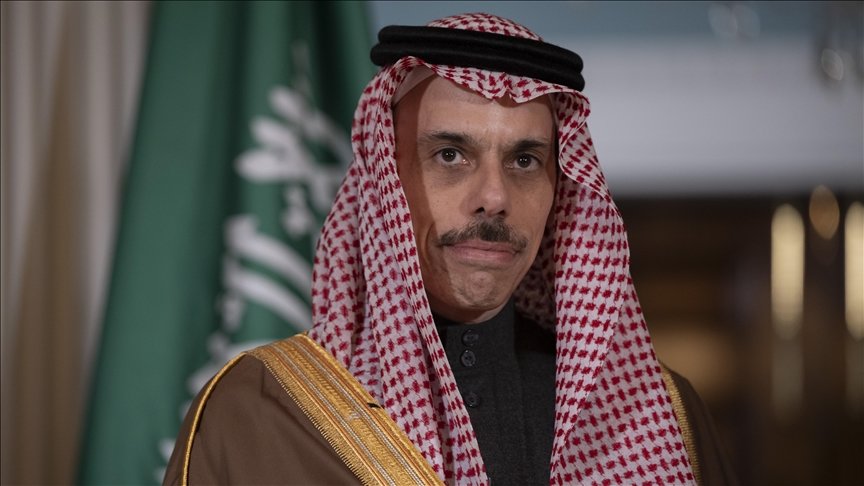
Saudi Arabia Calls for Enhanced Global Coordination at G20 Summit in Johannesburg
Foreign Minister Prince Faisal emphasises balanced growth, sustainability and collective resilience amid economic turbulence
Saudi Arabia issued a broad appeal for strengthened international coordination and a balanced, sectoral approach to tackle global challenges as the G20 summit opened in Johannesburg.
Foreign Minister Faisal bin Farhan Al Saud told delegates that “today, the world faces increasing levels of inequality and global economic turmoil that has left deep imprints on the lives of millions and led to an increase in regional and international tensions.”
He stressed that the current climate “requires continuous coordination and an integrated approach that balances economic development, environmental protection, and financial stability.” The minister emphasised the Kingdom’s commitment to building a sustainable global economy through active international partnerships and noted that G20 member states have a pivotal role in steering economic policy, sustainable investment and industrial strategy to protect vulnerable countries from crisis impacts.
The G20 Leaders’ Summit, hosted this year in the African city of Johannesburg under South African presidency, gathers heads of state, central-bank governors and finance ministers from twenty entities including the African Union and the European Union.
Against a backdrop of weakening global growth, rising debt and geopolitical fragmentation, Saudi Arabia’s intervention frames the Kingdom as a constructive actor promoting cooperative solutions rather than zero-sum rivalry.
In his address, Prince Faisal signalled that Riyadh expects the G20 process to move beyond rhetoric and deliver practical outcomes in areas such as infrastructure investment, green transition and industrial policy.
The articulation of a “balanced sectoral approach” reflects Saudi Arabia’s own national strategy of combining economic diversification under Vision 2030 with external diplomacy and investment partnerships.
Observers say the Saudi push aligns with the Kingdom’s ambition to assert leadership in international economic governance—moving from energy-exporting state to strategic policy contributor.
The call for coordination and shared resilience underscores Riyadh’s view that the upcoming era of competition among major powers must be navigated through multilateral frameworks and inclusive growth.
With the summit agenda covering issues from trade reform and climate finance to digital economy and development pathways, Saudi Arabia’s remarks set the tone for deeper engagement.
As the global economy remains fragile, the Kingdom’s emphasis on measured, inclusive policy signals its readiness to be an active driver of global solutions rather than a passive observer.
Foreign Minister Faisal bin Farhan Al Saud told delegates that “today, the world faces increasing levels of inequality and global economic turmoil that has left deep imprints on the lives of millions and led to an increase in regional and international tensions.”
He stressed that the current climate “requires continuous coordination and an integrated approach that balances economic development, environmental protection, and financial stability.” The minister emphasised the Kingdom’s commitment to building a sustainable global economy through active international partnerships and noted that G20 member states have a pivotal role in steering economic policy, sustainable investment and industrial strategy to protect vulnerable countries from crisis impacts.
The G20 Leaders’ Summit, hosted this year in the African city of Johannesburg under South African presidency, gathers heads of state, central-bank governors and finance ministers from twenty entities including the African Union and the European Union.
Against a backdrop of weakening global growth, rising debt and geopolitical fragmentation, Saudi Arabia’s intervention frames the Kingdom as a constructive actor promoting cooperative solutions rather than zero-sum rivalry.
In his address, Prince Faisal signalled that Riyadh expects the G20 process to move beyond rhetoric and deliver practical outcomes in areas such as infrastructure investment, green transition and industrial policy.
The articulation of a “balanced sectoral approach” reflects Saudi Arabia’s own national strategy of combining economic diversification under Vision 2030 with external diplomacy and investment partnerships.
Observers say the Saudi push aligns with the Kingdom’s ambition to assert leadership in international economic governance—moving from energy-exporting state to strategic policy contributor.
The call for coordination and shared resilience underscores Riyadh’s view that the upcoming era of competition among major powers must be navigated through multilateral frameworks and inclusive growth.
With the summit agenda covering issues from trade reform and climate finance to digital economy and development pathways, Saudi Arabia’s remarks set the tone for deeper engagement.
As the global economy remains fragile, the Kingdom’s emphasis on measured, inclusive policy signals its readiness to be an active driver of global solutions rather than a passive observer.